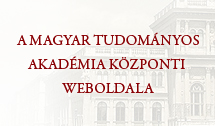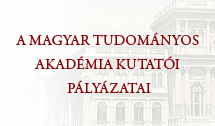The MTA BTK Lendület "Morals and Science" Research Group cordially invites you to its upcoming conference on
The Philosophy of Ian Hacking
Date: 29-30 March 2019
Venue: 4 Tóth Kálmán st., 1097 Budapest, 7th floor
Ve
Program:
Friday, 29 March
09.00-10.00: Janette Dinishak: "Autistic Autobiography" Ten Years Later
10.00-10.30: Krzysztof Tarkowski: Who Are You, Professor Hacking?
10.30-11.00: Loren King: Between Two Worlds: Reading Hobbes through Hacking
11.00-11.30: coffee break
11.30-12:30: Mark Risjord: Surrogative Inference and Entity Realism
12.30-13.00: Joao Ribeiro Mendes: The Influence of Gaston Bachelard's Philosophy of Science on Ian Hacking's Experimental Realism: An Assessment
13.00-14.30: lunch
14.30-15.00: Tina Wachter: Can Conventionalism Save the Identity of Indiscernibles?
15.00-15.30: Ozan Altinok: Ian Hacking: Limiting Language to Make Place for Reality
15.30-16.00: Charles Djordjevic: Doing 'Meaning and Use' Right: Hacking, History and the Legacy of the Later Wittgenstein
16:00-16:30: coffee break
16.30-17.00: Marius Markuckas: Ian Hacking's Philosophy and the Self-Contradiction of Transhumanism
17.00-18.00: Thomas Uebel: Language, Truth, and Hacking
Saturday, 30 March
09.00-10.00: Jonathan Tsou: Hacking on Looping Effects and Kinds of People: Instability and Stability in the Classification of Human Types
10.00-10.30: Georgina H. Mills: The Only Epistemic Looping Effect
10.30-11.00: Matteo Colombo & Regina Fabry: Predictive Processing and Delusion. On the Looping Dynamics of Personal and Sub-personal Explanation
11.00-11.30: coffee break
11.30-12.00: Vincenzo Politi: What If You Can't Spray Them? On Entities, Realisms and Inferences
12.00-12.30: Catherine Green: Nomadic Concepts: Hacking's Human Kinds and Social Science Concepts
12.30-13.30: lunch
13.30-14.30: Luca Sciortino: Why Styles of Reasoning Matter
14.30-15.00: Matteo Vagelli: Discursive Formations and Styles of Reasoning
15.00-15.30: Hanna Szabelska: Hacking's Archaeology of Probability: Critical Remarks
15.30-16.00: coffee break
16.00-17.00: Axel Gelfert: The Primacy of Practice: Ian Hacking's Philosophy of Mathematics
17.00-18.00: Paul Roth: Hacking's Historiography


